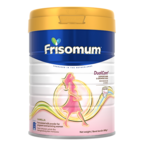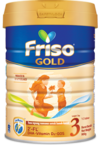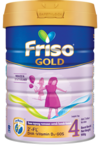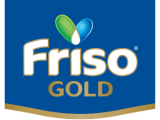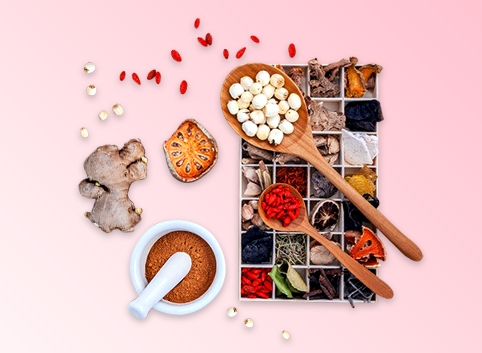Karin G Reiter: Yes, it will. It’s important to follow the recommended nutritional guidelines for pregnancy to ensure a healthy child. What mum eats now can lead to healthy or less than healthy development of child’s brain, organs, nervous system and immunity.
For instance, certain foods have a greater chance of containing harmful bacteria or causing foodborne illness, which can be extremely dangerous to a growing child. That’s why foods such as raw fish or unpasteurised cheeses are best avoided during pregnancy.
Many different nutrients play a role in supporting a healthy pregnancy, such as folate, which helps prevent brain and spinal abnormalities; as well as DHA, an omega-3 fatty acid that is also important for child’s brain development.

Pregnancy Q&A: Eating Enough vs Eating Well
One of the most commonly asked questions during pregnancy would be “How much should I eat now that I’m eating for two?”. However, 'eating for two’ can be tricky. With so many guidelines around food safety during pregnancy, the question of what to eat can also be rather confusing especially for first-time mums.
Is there a difference between "eating enough" and "eating well"?
Proper nutrition during pregnancy is vital for the health and well-being of both the mother and child. For the mother, adequate nutrition supports the increased demands on her body, contributing to a healthier pregnancy and reducing the risk of complications1. For the child, it plays a crucial role in optimal foetal development, influencing lifelong health outcomes. Essential nutrients like folic acid, iron, calcium, and omega-3 fatty acids are particularly important during this period2. A well-balanced diet ensures the mother receives the necessary nutrients, promoting a healthy pregnancy and providing the building blocks for the child's growth and development. But what is the difference between “eating enough” and “eating well”?
-
Eating Enough
Focuses on meeting the necessary caloric intake to sustain the increased nutritional needs during pregnancy. However, it may overlook the quality of foods consumed, potentially leading to nutrient deficiencies or unhealthy weight gain.
-
Eating Well
Prioritises the consumption of nutrient-dense foods rich in essential vitamins, minerals, and healthy fats. This approach aims to provide optimal nourishment for both the mother and child, promoting overall health and well-being during pregnancy.
To answer the age-old pregnancy question that many first-time mums often have, during pregnancy, "eating well" should take priority because it ensures not only a sufficient quantity of calories, but also the right quality of nutrients for optimal foetal development and maternal health.
Are you wondering how to navigate pregnancy-related questions you may have about your diet? Whether you're unsure about your fibre intake or curious about your increasing appetite, we’re here to help you shed some light on six common pregnancy-related nutrition questions that many expectant mothers face. Join us as we uncover the answers to six important nutrition questions in this pregnancy Q&A.
Will my pregnancy diet affect my child's health?
Yes, it will. It’s important to follow the recommended nutritional guidelines for pregnancy to ensure a healthy child. What mum eats now can lead to healthy or less than healthy development of child’s brain, organs, nervous system and immunity.3
For instance, certain foods have a greater chance of containing harmful bacteria or causing foodborne illness, which can be extremely dangerous to a growing child. That’s why foods such as raw fish or unpasteurised cheeses are best avoided during pregnancy.4,5
Many different nutrients play a role in supporting a healthy pregnancy, such as folate, which helps prevent brain and spinal abnormalities; as well as DHA, an omega-3 fatty acid that is also important for child’s brain development.
Morning sickness is affecting my appetite. Will this affect my child's development?
Morning sickness is a real pain, but it's a sign of a healthy pregnancy. The biggest concern with morning sickness is that you’ll become dehydrated, so make sure you’re drinking water throughout the day.9,10 When you do feel like eating, choose nutritious foods. Your growing child is clever at taking what they need nutritionally from you, but what you eat does matter. If your diet is deficient in nutrients, so will your child’s diet – and this could harm their development.
What are the ways that fibre can benefit my pregnancy?
Pregnancy can be rough on the digestive system, causing constipation and even haemorrhoids. So getting enough fibre by eating plenty of fresh fruits, veggies and whole grains is really important to keep your bowel movements regular. Fibre can also help to reduce your risk of pre-eclampsia, a dangerous pregnancy-related condition associated with high blood pressure.11
My appetite has increased since I became pregnant. I'm worried that I'm gaining too much weight and it's unhealthy. What advice can you give me?
It’s important not to be too hard on yourself while you’re pregnant. A big appetite, especially during high-growth periods of pregnancy during the second and third trimesters, is totally normal.4,8 Just make sure that your calories are coming from nutritious food – such as fresh fruits and veggies, lean meats and whole grains – to keep your blood sugar, mood and weight stable.
Why, when, what kind and how often should I take prenatal vitamins when I'm pregnant?
Even for women who are trying to get pregnant, it’s important to start taking nutrients, such as methylated folate, which is the active, natural form of folate to support a child’s early development.6 A well-balanced diet should cover the range of nutrients needed, but most women opt to take a daily pregnancy nutritional supplement to ensure that they get the optimum amount and balance of vitamins and minerals needed. Make sure your supplement contains calcium, iron and folate.7,12
How should my nutrition habits change during my first, second and third trimester?
It’s important for pregnant women to listen to their bodies. Symptoms such as morning sickness in early pregnancy or reflux later in the pregnancy often dictate the sorts of foods you feel like eating and when you feel like eating.
Particular nutrients are especially important at different stages of pregnancy. For example, folate supports brain and nerve development in early pregnancy; calcium and vitamin D help with bone development in the second trimester; and nutritious omega-3 fats such as DHA are important during the final stages.13
To ensure a strong child and a happy, healthy mum, a range of fresh and nutritious foods is always recommended. Supplements can also be a great support, giving you the assurance that you’re getting the right mix of nutrients to stay in tip-top condition for you and your child.
Essential nutrients for a healthy pregnancy
We hope the pregnancy Q&A above has covered all your burning questions about how your pregnancy diet influences you and your child’s well-being. To delve deeper into the world of pregnancy nutrition and discover the answers to some of the most commonly asked questions about pregnancy diets, check out our article What Healthy Foods to Eat During Pregnancy for more insights.
Although a nutritious diet will provide you with most of the vitamins and minerals you need, it’s also a good idea to take some additional forms of nutrition and supplements to ensure that your child has the necessary nutrition he or she needs.
To address the specific needs of mums-to-be, maternal milk is often recommended as it helps balance both your and your child’s nutritional needs safely. We have formulated Frisomum® Gold with both mum and child in mind, and its unique Dual Care+ formula supports you on your pregnancy journey.
Frisomum® Gold – Our formula milk alternative during your pregnancy
Frisomum® Gold our preferred prenatal milk for mums, preserves the natural nutrients of the milk to give you what you need in your pregnancy journey such as:
Vitamin D - Vitamin D is necessary for the absorption and utilisation of calcium and phosphorus14.
Calcium - Helps in the normal growth and development of bones and teeth15.
Vitamin B12 - Needed for red blood cell production and the healthy functioning of the nervous system16.
Folic Acid - Folic acid is essential for growth and division of cells. Folate plays a role in the formation of red blood cells. Folate helps to maintain the growth and development of the foetus17.
Iodine - Essential for the formation of thyroid hormones, which supports brain development18.
Low glycaemic index - The glycaemic index (GI) is a rating system for foods containing carbohydrates. It shows how quickly food affects your blood sugar (glucose) level when eaten on its own. The low glycaemic index (GI) could help the mother avoid being overweight during pregnancy.
When you consider pregnancy milk powder, it is also best to consider the origins of the milk, the process of manufacturing, and nutrient content as well as one which helps you control weight gain during pregnancy. Frisomum® Gold, our preferred prenatal milk for mums, preserves the natural nutrients of the milk to give you what you need in your pregnancy journey. Now that you are aware of the importance of maternal milk/susu, check out what Frisomum® Gold has to offer now!
Do remember that every pregnancy is a unique journey, and every woman's needs are different. Don't hesitate to seek support from healthcare professionals and registered dietitians. They can tailor a personalised dietary plan, address any concerns, and guide you through the ever-changing landscape of your nutritional needs. Trust their expertise while staying true to your body's intuitions. Embrace the freedom of intuitive eating, knowing you have a support network in place to ensure a healthy and joyful pregnancy for both you and your child.
References
- https://health.ucdavis.edu/blog/good-food/pregnancy-diet-common-myths-and-what-you-should-eat-during-your-pregnancy/2021/03
- https://health.gov/myhealthfinder/pregnancy/nutrition-and-physical-activity/eat-healthy-during-pregnancy-quick-tips
- https://www.ncbi.nlm.nih.gov/pmc/articles/PMC10719542/
- https://medlineplus.gov/pregnancyandnutrition.html
- https://www.hopkinsmedicine.org/health/wellness-and-prevention/nutrition-during-pregnancy
- https://www.globalhealingcenter.com/natural-health/what-is-methylated-folate/
- Nutrition During Pregnancy to Support a Healthy Mom and Child
- https://www.healthhub.sg/live-healthy/pregnancy-nutrition-during-pregnancy-eating-right-for-two
- https://www.healthhub.sg/live-healthy/morning-sickness-should-you-be-worried
- https://www.nhs.uk/pregnancy/related-conditions/common-symptoms/vomiting-and-morning-sickness/
- https://www.ncbi.nlm.nih.gov/pmc/articles/PMC7824257/
- https://www.mayoclinic.org/healthy-lifestyle/pregnancy-week-by-week/in-depth/prenatal-vitamins/art-20046945
- https://www.lancastergeneralhealth.org/health-hub-home/motherhood/getting-pregnant/everything-you-need-to-know-about-prenatal-vitamins
- Vitamin D. (2022). Retrieved 14 June 2022, from https://www.hsph.harvard.edu/nutritionsource/vitamin-d/
- Calcium. (2022). Retrieved 14 June 2022, from https://www.hsph.harvard.edu/nutritionsource/calcium/
- B Vitamins. (2022). Retrieved 14 June 2022, from https://www.hsph.harvard.edu/nutritionsource/vitamins/vitamin-b/
- https://www.nhs.uk/pregnancy/keeping-well/vitamins-supplements-and-nutrition/#:~:text=Folic%20acid%20before%20and%20during,tube%20defects%2C%20including%20spina%20bifida
- https://www.health.nsw.gov.au/kidsfamilies/MCFhealth/maternity/Pages/iodine-supplements-factsheet.aspx#:~:text=How%20much%20iodine%20do%20pregnant,micrograms%20per%20day%20when%20breastfeeding
-
Will my pregnancy diet affect my child's health?
-
Morning sickness is affecting my appetite. Will this affect my child's development?
Karin G Reiter: Morning sickness is a real pain, but it's a sign of a healthy pregnancy. The biggest concern with morning sickness is that you’ll become dehydrated, so make sure you’re drinking water throughout the day. When you do feel like eating, choose nutritious foods. Children are clever at taking what they need nutritionally from you, but what you eat does matter. If your diet is deficient in nutrients, so will your child’s diet – and this could harm their development.
-
What are the ways that fibre can benefit my pregnancy?
Karin G Reiter: Pregnancy can be rough on the digestive system, causing constipation and even haemorrhoids. So getting enough fibre by eating plenty of fresh fruits, veggies and whole grains is really important to keep your bowel movements regular. Fibre can also help to reduce your risk of pre-eclampsia, a dangerous pregnancy-related condition associated with high blood pressure.
-
My appetite has increased since I became pregnant. I'm worried that I'm gaining too much weight and it's unhealthy. What advice can you give me?
Karin G Reiter: It’s important not to be too hard on yourself while you’re pregnant. A big appetite, especially during high-growth periods of pregnancy during the second and third trimesters, is totally normal. Just make sure that your calories are coming from nutritious food – such as fresh fruits and veggies, lean meats and whole grains – to keep your blood sugar, mood and weight stable.
-
Why, when, what kid and how often should I take pre-natal vitamins when I'm pregnant?
Karin G Reiter: Even for women who are trying to get pregnant, it’s important to start taking nutrients, such as methylated folate, which is the active, natural form of folate to support a baby’s early development. A well-balanced diet should cover the range of nutrients needed, but most women opt to take a daily pregnancy nutritional supplement to ensure that they get the optimum amount and balance of vitamins and minerals needed. Make sure your supplement contains calcium, iron and folate.
-
How should my nutrition habits change during my first, second and third trimester?
Karin G Reiter: It’s important for pregnant women to listen to their bodies. Symptoms such as morning sickness in early pregnancy or reflex later in the pregnancy often dictate the sorts of foods you feel like eating and when you feel like eating.
Particular nutrients are especially important at different stages of pregnancy. For example, folate supports brain and nerve development in early pregnancy; calcium and vitamin D help with bone development in the second trimester; and nutritious omega-3 fats such as DHA are important during the final stages.
To ensure a strong baby and a happy, healthy mum, a range of fresh and nutritious foods is always recommended. Supplements can also be a great support, giving you the assurance that you’re getting the right mix of nutrients to stay in tip-top condition for you and your baby.
Explore Friso® Gold Products
